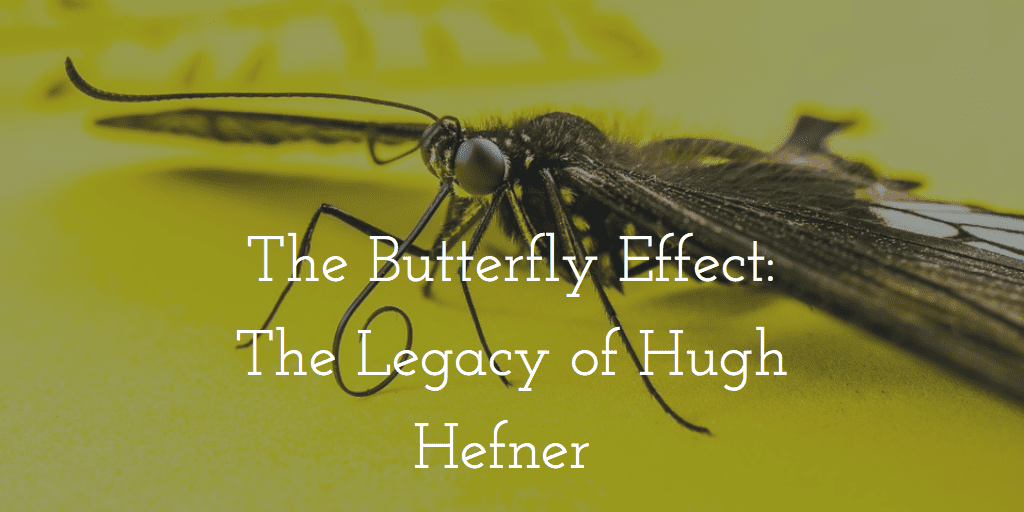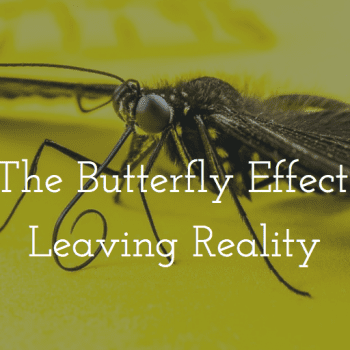“What you call love was invented by guys like me to sell nylons.” -Don Draper
 This past week the world saw the death of the infamous Hugh Hefner, and if your internet has been anything like mine, it’s been filled with people lamenting his life and passive aggressively saying things like “Who am I to judge?” and then proceeding to be pretty judgy.
This past week the world saw the death of the infamous Hugh Hefner, and if your internet has been anything like mine, it’s been filled with people lamenting his life and passive aggressively saying things like “Who am I to judge?” and then proceeding to be pretty judgy.
Everyone, that is, except for Ross Douthat.
Douthat is one of my favorite columnist at the New York Times, he’s a conservative Catholic who wrote an article Sunday that did not mince words about Hefner. It was called “Speaking Ill of Hugh Hefner: An honest obituary for a horrible American.”
It was incredible.
Not because Hefner was the epitome of evil, he obviously didn’t invent porn. But Hefner did mainstream something that has helped to derail so many families/people’s lives in the name of promises that sounded noble, but were ultimately hollow.
But I’ll come back to Hefner in a minute.
The Butterfly Flaps Its Wings
So this past summer, I listened to Jon Ronson’s new podcast “The Butterfly Effect”
Ronson is like the British version of Malcolm Gladwell, and I’ve recently become a big fan. He wrote one of the best books I read last year, (So You’ve Been Publicly Shamed) and so when I heard that he had recently released a new audio book/podcast on Audible I was excited.
But when I heard it was an in-depth look into the porn industry, I was….ummm, hesitant.
Ronson’s great at cultural commentary, but for obvious reasons, this didn’t strike me as something I wanted to give my attention to. However, since I’m a fan of Ronson, I listened to the first episode and then I was hooked.
It’s not a podcast done from a Christian or Anti-Porn perspective, but as a journalist trying to chase down the answer to this question: Who pays the cost for free porn?…Really.
And the answers to that question are fascinating, and a short answer version of this whole series is…you do.
So I’m starting this series now, a series about that podcast, because of what I noticed last week when Hugh Hefner passed away. When Hefner died, it seems like his death embodied the schizophrenic view we Westerners have about all things related to our sexuality.
It seems to me that Hugh Hefner is an embodiment of the Sexual Revolution, in life, and in death.
The topic of Hefner’s death has been so polarizing, What’s his eternal destination? What is his real legacy? And like the sexual revolution, I think the truth needs a more nuanced answer. Yes, Hefner helped empower women…to a point.Yes he was an entrepreneurial genius and a free speech pioneer.
But like the sexual revolution itself, most summaries of his life fail to acknowledge both the gains and the losses that the Sexual Revolution (and people like Hefner) gave the world.
But as someone who lives on the consequence side of the equation I think about this a lot.
I’ve been in many rooms sitting with the family when the mom tells her kids why daddy’s not going to be living with them anymore. I’ve watched single parents struggle to raise their kids alone, or a family put back the pieces from an affair or porn addiction too many times to just pretend like all that missing in most people’s sex life is a bit more freedom from those stupid old social restraints.
Yes, having pills and contraceptives may make sex safer, but c’mon, don’t we know that sex has never been anything remotely close to safe?
What we do with our bodies in this way is filled with all kinds of consequences. Physical consequences, emotional consequences and the mind-boggling consequence that you might actually create another human soul!
Which Direction is Progress?
For those of us who live on the consequence side of the equation, for those of us in professions where we get to see what this does to other people, we know.
For those of us who are in social services, or those of us in any kind of counseling or for anyone really paying attention, I think it’s starting to feel like they we’re waking up from a dream, realizing this isn’t working.
A few months ago, I read an op-ed piece in the NYTimes by Lauren Peterson called “Wanting Monogomy as 1,926 Men await my Swipe”
Peterson had been dating a man she met through Tinder, and after a while, she broke the unspoken rules of Tinder and fell in love with someone who it turned out didn’t love her back.
And so she said while there are 2000 men who have said they would love to hook up with her, she really is just interested in one.
The essay is filled with a kind of yearning melancholy that epitomizes the hook-up culture of today and the long term effects of the sexual revolution.
And yes, while the truth is that there have been a lot of great advancements from the sexual revolution, not everything that has happened has been steps forward.
I think of all the bankrupt, heartbroken real people I know who lived on the consequence side of this big lie that’s repeated long enough and loud enough that we believed it, and we’ve bought into it hook line and sinker.
That what is really missing in your life, in my life, is sexual freedom.
And then I think of my friends that I grew up with in poverty, and how so many of the people I grew up with are either dead of in jail because of addictions, and the major difference between me and them is that my parents stayed together, and theirs did not.
I think about how the #1 indicator of whether someone is going to be upwardly mobile in life is if they come from a home that stays in tact, and how progressive people, in the name of sexual freedom, seemed to have stop caring about something so fundamental, that makes a tremendous economic impact for people who are economically vulnerable.
I think of how Victoria Secret started marketing toward pre-teens a few years ago, and about the impossible body image that women (and increasingly men) are having imprinted in their imagination.
I think of the increased loneliness, decreasing marriage, increasing divorces and the fact that sexual trafficking is more prevalent today than ever before in human history
And then I come back to Hugh Hefner.
Not that you can lay all that at his feet, but I think he does have some responsibility for some of it.
And so do we.
So I noticed last week when when Hefner died, it seems like his death embodied the schizophrenic view we Westerners have about all things related to our sexuality. And our inability to come to grips with, and be honest with ourselves about both the good and the bad of the past few decades.
So Hefner was good for women? Okay, but only until he wasn’t. He was good for sex, until he wasn’t.
Probably no one in this century has been more of the tip of the spear for moral decay than Hugh Hefner, but as a Christian I believe that there is more here there any one person. Or really any person.
I believe that there are principalities and powers that are opposed to King Jesus and hostile toward God and the Kingdom of God.
I believe one of those principalities and powers is alive and well today, and used to go by the name Aphrodite.
Since the Sexual Revolution, Americans have made some significant changes in the bedroom, some of them for the better and a lot that were not. I think Hefner’s death gives us an opportunity to have a reckoning about it.
Because c’mon…don’t we see as Christians today many of us have capitulated to some ideas that the first Christians would’ve found rightfully offensive?
Now that death has taken him, we should examine our own sins. Liberals should ask why their crusade for freedom and equality found itself with such a captain, and what his legacy says about their cause. Conservatives should ask how their crusade for faith and family and community ended up so Hefnerian itself — with a conservative news network that seems to have been run on Playboy Mansion principles and a conservative party that just elected a playboy as our president.
No one embodies more the Sexual Revolution than this man, and I have a hunch that “In every way that mattered his life story proved that we were wrong to listen to him”
That is his greatest legacy.
This series is about his life’s butterfly effect.












